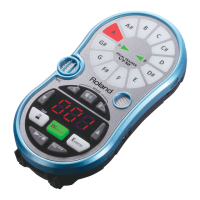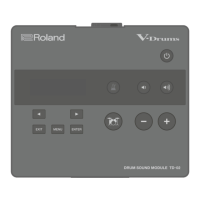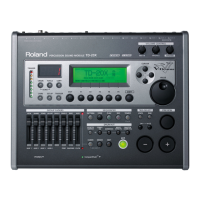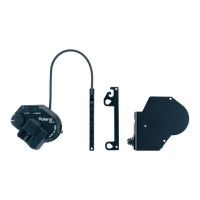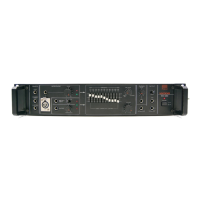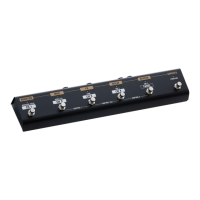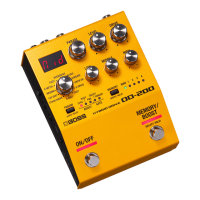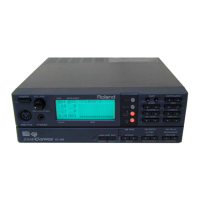24—MIDI and Synchronization
Roland VS-2480 Owner’s Manual www.rolandus.com 307
Synchronization
Why Sync the VS-2480?
The ability to synchronize the VS-2480—specifically, its hard disk recorder—with other
devices can be useful in a variety of situations.
Working with a MIDI Sequencer
You can sync the VS-2480 to any kind of sequencer—a standalone hardware sequencer,
a computer sequencing program or the sequencer in a beat box. Live stage productions
with sequencer-driven lighting cues can also be synchronized to house sounds
generated by the VS-2480.
In music, synchronizing the VS-2480 with a sequencer allows you to record MIDI
instruments as audio on the VS-2480’s tracks. It also lets you create a finished musical
work without
ever
recording your MIDI instruments as VS-2480 tracks, perfecting your
sequenced tracks as you listen to them alongside your recorded VS-2480 tracks. The
sequencer can play its MIDI instruments live through the VS-2480’s input channels
during the final mixdown.
As described earlier in this chapter, you can record all of your VS-2480 actions into a
sequencer as SysEx data, and have the sequencer play them back during a project. A
sequencer can also adjust VS-2480 parameters in realtime using Control Change
messages (Page 303) as a project plays or during recording.
Working with a Video or Film Editing System
Since you can synchronize the VS-2480 to any system that uses MTC or SMPTE
synchronization (described later in this chapter), The VS-2480 can be a great asset in
video or film soundtrack, commercial spot production or post-production work.
Synchronization lets you place the musical scores, narration or sound effects you’ve
recorded on the VS-2480 perfectly to picture, thanks to the VS-2480’s accurate frame/
subframe synchronization precision.
Basic Synchronization Concepts
Master/Slave
When two devices are synchronized with each other, one devices is always designated
as the “master” and the other the “slave,” as we mentioned back in Chapter 9 in the
discussion of digital audio’s master clocking. In synchronization, the:
•
master
—generates the timing reference that both devices use.
•
slave
—operates using the master’s timing reference.
The VS-2480 can operate as master and/or slave, depending on the situation, as
described in the following sections.
What Do We Mean By “Timing Reference?”
A timing reference is a kind of message continuously transmitted from master to slave
to keep the devices synchronized. The VS-2480 works with two types of timing
references when synchronizing its hard disk recorder with another device.
VS2480OMUS.book 307 ページ 2006年2月7日 火曜日 午後4時16分

